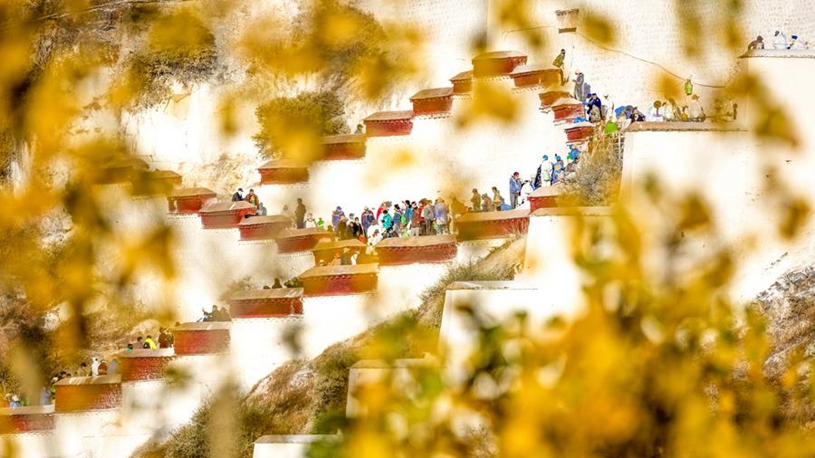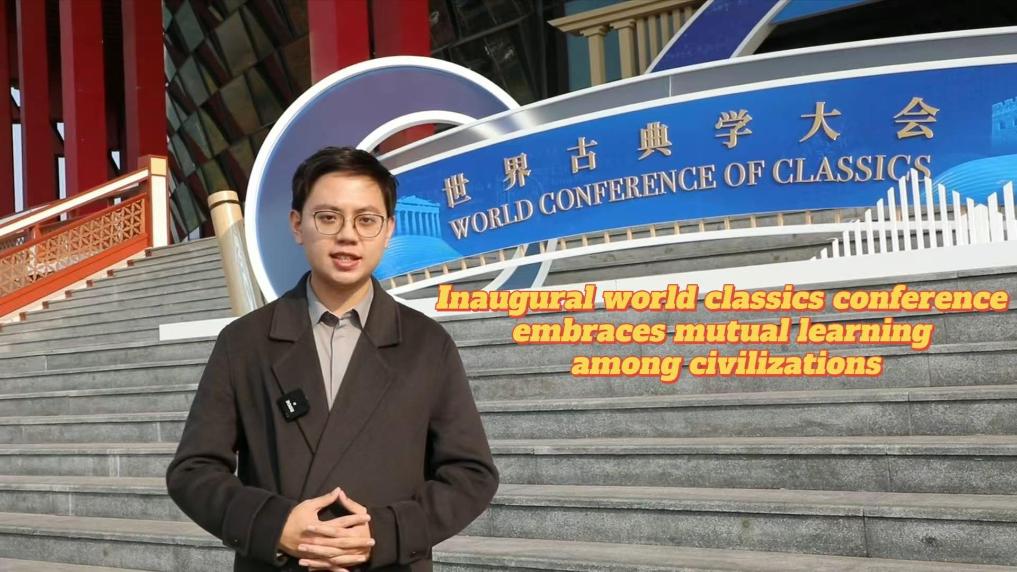These great contributions have not only made Angkor totally safe from any harm, but also become a highly attractive destination in the world, said Long Kosal, deputy director-general of the APSARA National Authority.
PHNOM PENH, Nov. 9 (Xinhua) -- International cooperation has achieved tremendous results in helping safeguard and develop the Angkor Archaeological Park, a world heritage site in northwest Cambodia's Siem Reap province, a spokesperson said on Friday.
Angkor, Cambodia's most popular tourist destination, was inscribed on the World Heritage List of the United Nations Educational, Scientific and Cultural Organization (UNESCO) in 1992.
A year later, the International Coordinating Committee for the Safeguarding and Development of the Angkor (ICC-Angkor) was established to coordinate all foreign assistance for preserving and developing the ancient site.
Long Kosal, deputy director-general and spokesperson of the APSARA National Authority, the management authority responsible for protecting and preserving the Angkor, said restoration projects carried out by expert teams from China, France, India, Japan, South Korea, Germany and the United States, among others are crucial to restoring ruined temples in the Angkor complex to their original shapes.
"Tremendous achievements in safeguarding and developing the Angkor cultural heritage have been made throughout these years," he told Xinhua. "These great contributions have not only made the Angkor totally safe from harm in any form, but also become a highly attractive destination in the world."
"To this end, the Angkor has greatly contributed to rejuvenating the country's economic and social development," he added.
Kosal said China is one of the key contributors to safeguarding and developing Cambodia's cultural heritage through many cultural cooperation platforms.
"As for Angkor, we had two important temples, the Chau Say Tevoda and the Ta Keo, restored by the Chinese expert team and another restoration project on the ancient Royal Palace of Angkor Thom has been underway," he said.
"Hence, this continued effort amplified great Chinese commitment toward the preservation and restoration of temples in Angkor," he added.
The spokesperson said China's contribution to restoring those ancient temples has not only ensured the protection of the Angkor monuments, but also helped attract more and more Chinese tourists to the site.
"Chinese experts' skills and expertise in restoring temples at the Angkor are very high, and the results of their work have been highly evaluated and admired by the ICC-Angkor's technical committee," he said.
"China has played a greater role in helping safeguard and develop the cultural heritage of humanity in Cambodia and other countries," he added.
The 401-square-km Angkor Archaeological Park is home to 91 ancient temples, which had been built from the ninth to the 13th centuries.
The site attracted 774,203 international tourists during the January-October period of 2024, a year-on-year increase of 28.4 percent, the state-owned Angkor Enterprise's report said, adding that it made 36 million U.S. dollars from ticket sales during the period, up 29 percent.■












